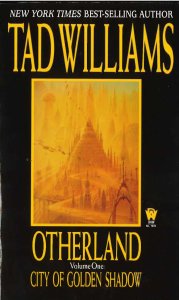What an enlightening month November has been! If you ever wanted a crash course in what makes writing the best or the worst, this was it.
There is so much to learn about writing craft and storytelling from the masters yet we can learn equally from writing that doesn’t engage us. Deciding on the ‘best’ means we need to understand why we like what we do and what constitutes the best for each of us (Kristin Luna). It also means not disregarding other forms of fiction because the best stories use elements of both literary and commercial fiction and knowing how each works makes us better skilled writers (Susan Forest).
Elements in the best writing includes:
precision of word choice, great imagery and detail plus an author who gets right into his character’s heads (Clancy); a grasp on multi-sensory prose which like a dream, makes the fantastical normal and lifts the reader to a place of wonder (Brenda Sawatsky); cliffhangers and when multiple story lines crash together in a maelstrom of calamity at the end of a book (Evan); well executed diverse fiction that helps the reader understand the world we live in and cultivates respect (Kim May); story matters and being a good storyteller with proper pacing and resolutions is key, but before telling the story, think about how much you can tell us by each word, each sentence, and the beauty you strive for in bringing them together (Colette); it’s not just about the protagonist against the antagonist but about how every character interacts with every other character (Jace Sanders); heroes aren’t heroes all the time. They are just humans with something about them that is extraordinary, and the more flawed a character is, the more human they seem (Leigh Galbreath); the best writing has characters who strive for themselves along with sentences that soar on their own (James Van Pelt); successful prologues convey information without being an info dump and they promise a story/writing style upon which they deliver (Ace Jordyn); a consistent background which functions almost as another character, widening the options for the protagonist’s conflict along with psychological realism where characters behave consistently (Al Onia); the key to the ‘best’ has less to do with perfect prose, and more to do with story impact when what we’re writing matters, emotions rise up, and the reader can feel it (Adria Laycraft).
What constitutes the worst writing includes:
meandering prose that loses the reader and is boring and there’s no beginning, middle or end and no characters to invest in (Clancy); it’s a bad idea to mislead readers about what kind of story you are telling readers for pick up books because they’re hoping for a certain type of experience. (Mary); when writers grab hold of a culture’s cool elements—Samurai swords, martial arts, ninjas—and throw the rest out the window because the history, philosophy, sociology, and traditions are so intertwined and influential on the cool elements that you can’t separate the two and do it justice. (Kim May); it’s not possible to root for a guy who seems like a walking pity party or if the main character lacks any sense of wonder (James Van Pelt); prologues don’t work if they create expectations that the book doesn’t meet either in story content or style, if they’re an info dump or if they are used to foreshadow or tease (Ace Jordyn); when writers betray the promises set in the beginning of the book and shatter the reader’s bond with the story (Frank).
So how can we judge how we each measure up at being the best? We can compare our work to those we admire and like to read or, as Nathan Barra observed, we can learn by comparing our earlier works to our current ones and being motivated by that.
In case you want to follow up on any of the excellent points I’ve summarized, here is a list of November’s blogs. Just click on the title and the link will get you there.
Happy reading and writing!
Lee Child vs the Boring Clancy
Not What I Signed Up For Mary
The Dreamer Brenda Sawatzky
In Loving Appreciation of the Story Swirl Evan Braun
The Emperor and the Impostor Kim May
Kneeling in the Silver Light Mary
The Importance of Word Choice Colette
Learning from the Masters Jace Sanders
A Tale of Two Readers; or, Everybody Wins Kristin Luna
The Not So likeable Hero Leigh Galbreath
Pluck, Pity Parties and Prose – What I Like Best and What Doesn’t Work James Van Pelt
SSWS Writing Scholarship: Should YOU Apply? Colette
Clive Cussler, Guy Gavriel Kay and DJ McIntosh are Masters at … Ace Jordyn
Writing What I Like to Read Al Onia
Writing Stories that Matter Adria Laycraft
Looking for Progress in a Mirror Nathan Barra
Don’t Break Your Promises Frank
Using the Tools of Both Literary and Commercial Fiction Susan Forest


 As a reader, I have a lot of reverence for the cliffhanger. I think I am perhaps in the minority here. I can certainly remember a time when cliffhangers drove me crazy. Back when I was in junior high, I would anxiously (not boldly) go into the various Star Trek season finales, knowing they wouldn’t end well for my heroes and I’d likely suffer months of torment afterward waiting for the inevitable resolution come fall.
As a reader, I have a lot of reverence for the cliffhanger. I think I am perhaps in the minority here. I can certainly remember a time when cliffhangers drove me crazy. Back when I was in junior high, I would anxiously (not boldly) go into the various Star Trek season finales, knowing they wouldn’t end well for my heroes and I’d likely suffer months of torment afterward waiting for the inevitable resolution come fall.